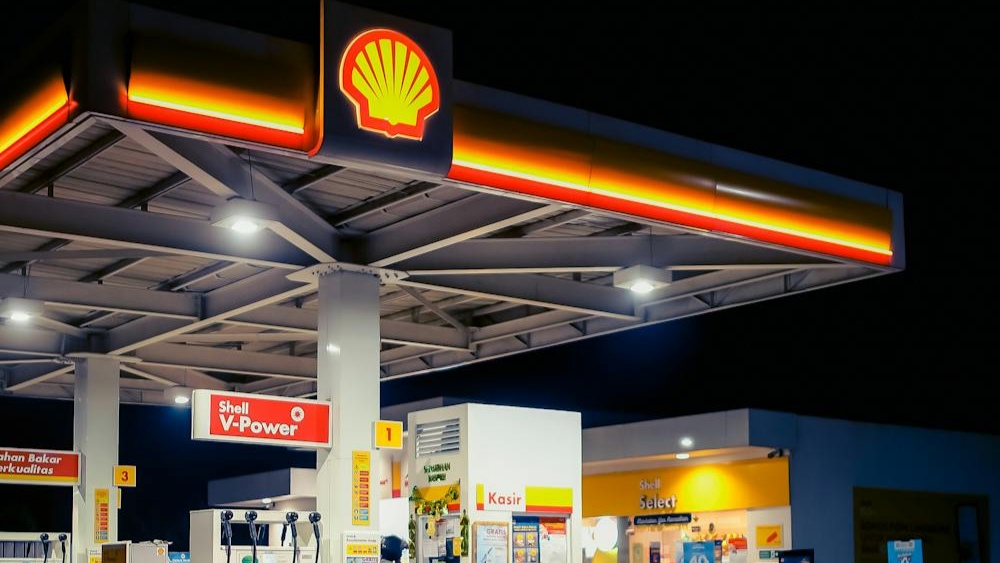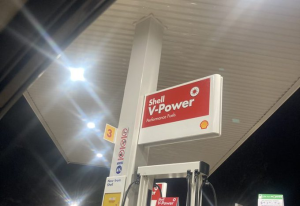Business
Vivo Energy Kenya’s Attempt to Quell Shell V-Power Fuel Quality Concerns Backfires, Fueling Public Distrust
For many Kenyans, this crisis isn’t just about Shell V-Power—it’s about the broader fight for consumer rights in an environment where corporate impunity is too often the norm.

Vivo Energy Kenya’s efforts to address mounting accusations regarding Shell V-Power fuel quality have backfired, exacerbating public distrust. What began as isolated complaints about engine troubles has escalated into a full-blown public relations crisis.
The company’s attempts to defend its premium fuel brand have been met with widespread skepticism and outrage, as Kenyan motorists share alarming accounts of engine issues allegedly linked to Shell V-Power.
The controversy gained traction following a viral video titled “Testing Petrol Quality in Kenya” by content creator Tanuki Garage, which raised concerns about the quality of Shell V-Power fuel. The video prompted a wave of reactions on social media, with Kenyans expressing skepticism, disappointment, and calls for accountability.
“I trusted Shell V-Power for years, but after my car broke down last week, I’m done. Vivo Energy needs to take responsibility instead of hiding behind lab reports,” tweeted one user.
The video, posted by William Kimm, known online as GTR Tanuki, documented fuel tests conducted at seven different stations in Nairobi. His findings suggested that some premium fuels, including Shell V-Power, performed worse than their standard counterparts. At one station, Shell V-Power scored 87 PON (Pump Octane Number), while the standard fuel at the same station achieved a higher score of 91 PON.
This video, which has garnered significant attention, has led to numerous Kenyans, including whistleblower Nelson Amenya, sharing their experiences with what they perceive as substandard fuel. Amenya’s revelation about his car’s near breakdown after using Shell V-Power has resonated with many, amplifying the public’s demand for accountability.
In response, Vivo Energy Kenya, the distributor of Shell products in the country, issued a statement reaffirming that all its fuel imports adhere to strict quality standards, with Shell V-Power categorized at a Research Octane Number (RON) of 95. The company emphasized its stringent quality control measures and announced a comprehensive investigation, including independent laboratory testing, to address the claims.
Vivo Energy’s Defense Falls Flat
Vivo Energy later released a statement citing independent tests from Intertek Testing Services, which reportedly confirmed Shell V-Power’s compliance with the required RON of 95. Samples taken from six Nairobi stations, including Kilimani, Lavington, and Limuru Road, allegedly met or exceeded this standard.
The company also highlighted its rigorous quality control measures, including daily water content and density tests, mobile testing labs, and thorough inspections before fuel reaches the pumps. However, rather than reassuring the public, these statements fueled further skepticism. Kenyans took to social media to question the credibility of the tests, dismissing them as a corporate smokescreen.
“What’s the point of your lab tests if my car won’t start? Show us real-time testing at the pumps, not scanned documents!” wrote one frustrated user on Facebook. Another demanded independent investigations into specific Shell stations accused of selling fake fuel.
Social Media Backlash: PR Blunders and Influencer Misdirection
Instead of addressing consumer concerns directly, Vivo Energy launched an aggressive PR campaign, enlisting social media influencers to discredit independent fuel quality tests. Many of these influencers, who lacked automotive expertise, dismissed the viral test videos as “unscientific” and urged Kenyans to trust corporate-backed lab reports.
This strategy backfired spectacularly. Kenyans, already wary of corporate crisis management, saw through what they described as a coordinated misinformation campaign. The backlash was immediate, with users ridiculing the influencers and Vivo Energy for attempting to spin the narrative rather than providing transparent evidence.
“You can’t PR your way out of evidence,” read one viral tweet, while others mocked the campaign for using “nutritionists to explain fuel performance.”
The backlash intensified when it was discovered that many influencer posts shared identical wording, leading to accusations of a coordinated PR effort. “Using influencers to explain fuel quality is like asking a chef to fix a car engine. It makes no sense!” tweeted one user.
Calls for Independent Investigations as EPRA Stays Silent
Amid the growing controversy, the Energy and Petroleum Regulatory Authority (EPRA) has remained conspicuously silent, drawing further criticism. Many Kenyans are now questioning whether regulatory oversight is stringent enough to protect consumers from potential fuel adulteration.
The Shell V-Power scandal has also highlighted broader concerns about corporate accountability in Kenya. From banking scandals to substandard consumer goods, Kenyans are growing increasingly impatient with companies that prioritize profits over consumer trust.
A Lesson in Crisis Management
Vivo Energy Kenya’s handling of the Shell V-Power scandal has been widely criticized as a textbook example of how not to manage a crisis. By focusing on discrediting whistleblowers and relying on lab reports instead of engaging directly with consumers, the company has deepened public mistrust.
“This isn’t just about fuel quality anymore. It’s about respect. Kenyans deserve honesty and transparency, not corporate spin,” wrote one commentator on LinkedIn.
What’s Next for Vivo Energy?
As the backlash continues to grow, Vivo Energy Kenya faces an uphill battle to restore its reputation. For many Kenyans, the damage is already done. “I’ll never buy Shell V-Power again. There are other brands that actually care about their customers,” said one motorist in a widely shared video.
The scandal has also underscored the power of social media in holding corporations accountable. In a country where stories of compromised products and lax regulation are all too common, Kenyans are using their voices to demand better.
For Vivo Energy, the road to redemption will require more than just press releases and lab reports. It will take genuine accountability, transparent investigations, and a commitment to putting consumers first.
For many Kenyans, this crisis isn’t just about Shell V-Power—it’s about the broader fight for consumer rights in an environment where corporate impunity is too often the norm. The coming weeks will determine whether Vivo Energy can salvage its reputation or whether this controversy will leave a permanent dent in the Shell brand’s credibility in Kenya.
Kenya Insights allows guest blogging, if you want to be published on Kenya’s most authoritative and accurate blog, have an expose, news TIPS, story angles, human interest stories, drop us an email on [email protected] or via Telegram
-

 Grapevine2 weeks ago
Grapevine2 weeks agoRussian Man’s Secret Sex Recordings Ignite Fury as Questions Mount Over Consent and Easy Pick-Ups in Nairobi
-

 News1 week ago
News1 week agoTHE FIRM IN THE DOCK: How Kaplan and Stratton Became the Most Scrutinised Law Firm in Kenya
-

 Investigations2 weeks ago
Investigations2 weeks agoMulti-Million Dollar Fraud: Three Kenyans Face US Extradition in Massive Cybercrime Conspiracy
-

 Economy1 week ago
Economy1 week agoIran Demands Arrest, Prosecution Of Kenya’s Cup of Joe Director Director Over Sh2.6 Billion Tea Fraud
-

 Business1 week ago
Business1 week agoA Farm in Kenya’s Rift Valley Ignites a National Reckoning With Israeli Investment
-

 Africa2 weeks ago
Africa2 weeks agoFBI Investigates Congresswoman Ilhan Omar’s Husband’s Sh3.8 Billion Businesses in Kenya, Somalia and Dubai
-

 Grapevine5 days ago
Grapevine5 days agoA UN Director Based in Nairobi Was Deep in an Intimate Friendship With Epstein — He Even Sent Her a Sex Toy
-

 News2 weeks ago
News2 weeks agoTragedy As City Hall Hands Corrupt Ghanaian Firm Multimillion Garbage Collection Tender



















